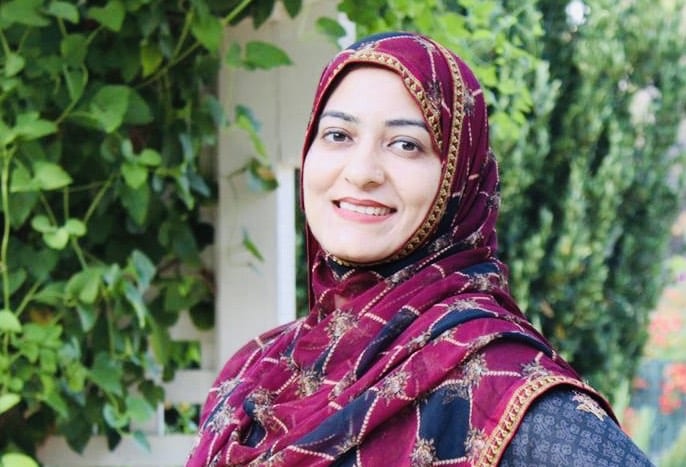 Undertaking a Robbins Fellowship during the COVID-19 pandemic comes with a unique set of travails but Mahwish Moazzam is no stranger to contending with challenges. “I am used to adversity in my academic pursuits” explained the Robbins Collection and Research Center’s most recent fellow.
Undertaking a Robbins Fellowship during the COVID-19 pandemic comes with a unique set of travails but Mahwish Moazzam is no stranger to contending with challenges. “I am used to adversity in my academic pursuits” explained the Robbins Collection and Research Center’s most recent fellow.
Mahwish received her JD from the Punjab University Law College, graduating first in her class. She recently earned her L.L.M. at Berkeley Law, with a specialization in International Law and also served as associate editor for the Berkeley Journal of Middle Eastern & Islamic Law. Prior to coming to Berkeley, she taught Comparative Constitutional Law, Jurisprudence, Islamic Law, and the Law of Torts at the Superior College of Law in Lahore, Pakistan. She has published extensively on topics related to human rights and the rule of law.
During her time as a Robbins Fellow, Mahwish is researching the jurisdiction of the Supreme Court of Pakistan. She explains that, “Despite being the third tier of the democratic system, [the Supreme Court] is often used to facilitate military and authoritarian regimes by validating and providing a cover of legal legitimacy.” However, during the beginning of the 21st century, the Supreme Court started a campaign of judicial atonement, including “judicial review,” and began taking suo moto notices in matters of public importance. Mahwish shares that, “A lack of restraint and political accountability resulted in the transmutation of activism into judicial overreach, undermining the constitutional doctrine which assures the separation of powers between legislature, executive, and judiciary.” Her research highlights this fine line between judicial activism and overreach. She asks, “Is it appropriate for the judiciary to decide its own limits, or should this matter be addressed and solved in parliament?”
Mahwish’s research also has a secondary, comparative approach. Pakistan borrowed the concept of judicial review from the U.S. judicial system. She is investigating the role and effects of partisan entrenchment on the U.S. Supreme Court’s choice to accept cases and how it is used to keep other branches of government in check. Mahwish says that the Fellowship has, “granted me unprecedented access to the best sources of legal research available, including the Robbins Collection and the Berkeley Law Library.” Because of her Fellowship, Mahwish has access to a rich diversity of U.S. legal research tools to enrich the comparative dimensions of her project.
One of the major difficulties of doing research during the global pandemic is that the Law Building is closed and thus Mahwish has not had access to a personal desk in the Robbins Collection reading room. In addition, she explains that “Unfortunately, many of the books required for my research are not available online. However, I am extremely grateful to the Robbins Collection staff who are helping to find work-around solutions to this problem.” But, she says, “I am honored to be a Robbins Fellow, even under the arduous conditions caused by COVID-19. In Pakistan, I have had many different hurdles to overcome. No challenge is too great in the pursuit of knowledge.”